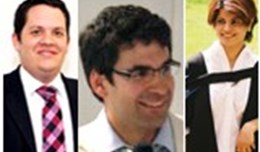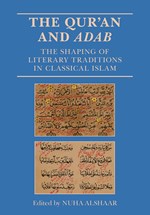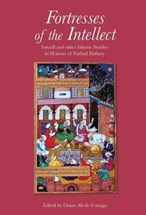‘Epistles of the Brethren of purity’

Publications

IIS Qur’anic Studies Panel at the British Association for Islamic Studies in Edinburgh
Drs Omar Alí-de-Unzaga, Stephen Burge and Nuha al-Sha‘ar of the Qur’anic Studies Unit presented a panel entitled Citations of the Qur’anin Islamic Literature at the Inaugural Conference of the British Association for Islamic Studies (BRAIS)in Edinburgh.

Ismaili Studies: History and Future Directions
IIS joined Università degli Studi di Napoli ’L’Orientale’ for a day-long conference on Ismaili Studies.

IIS Hosts International Conference on Science and Philosophy
The Institute of Ismaili Studies hosted a bi-lingual French/English conference on ‘Science and Philosophy in Classical Islamic Civilization’ from 3-5 December 2010.


Talks

IIS Commemorative Lecture Connects the Past, Present and the Future
Four short talks explored themes integral to the Institute’s work: heritage, knowledge, people and the future. The talks were followed by a lively discussion with the audience on the role and relevance of an academic Institute devoted to Ismaili and Shi‘i studies in the modern world.

Fortresses of the Intellect

Mathematics vs. Physics: Ibn al-Haytham's Geometrical Conception of Space and the Refutation of Aristotle's Physical Definition of Place
This article was specially written for The Institute of Ismaili Studies website. Epistemological reflections on foundational scientific principles become pivotal in the reformative development of specific branches of the sciences. The methodological adjustments that accompany such critical circumstances in the unfolding of scientific knowledge necessitate a reclassification of established concepts by way of accommodating novel theoretical hypotheses or emergent conceptual constructs.

The Ismaili Vocabulary of Creation
The earliest Ismaili thinkers were, like nearly all Muslim theologians and philosophers, confronted unavoidably with the problem of explaining how God created the universe. Apparently less concerned with public opinion and possible censure, they wrote freely although unorthodoxly on the subject. Most often they followed the dictates of their own Neoplatonist logic rather than tradition and the literal interpretation of Qur'anic scriptures.
